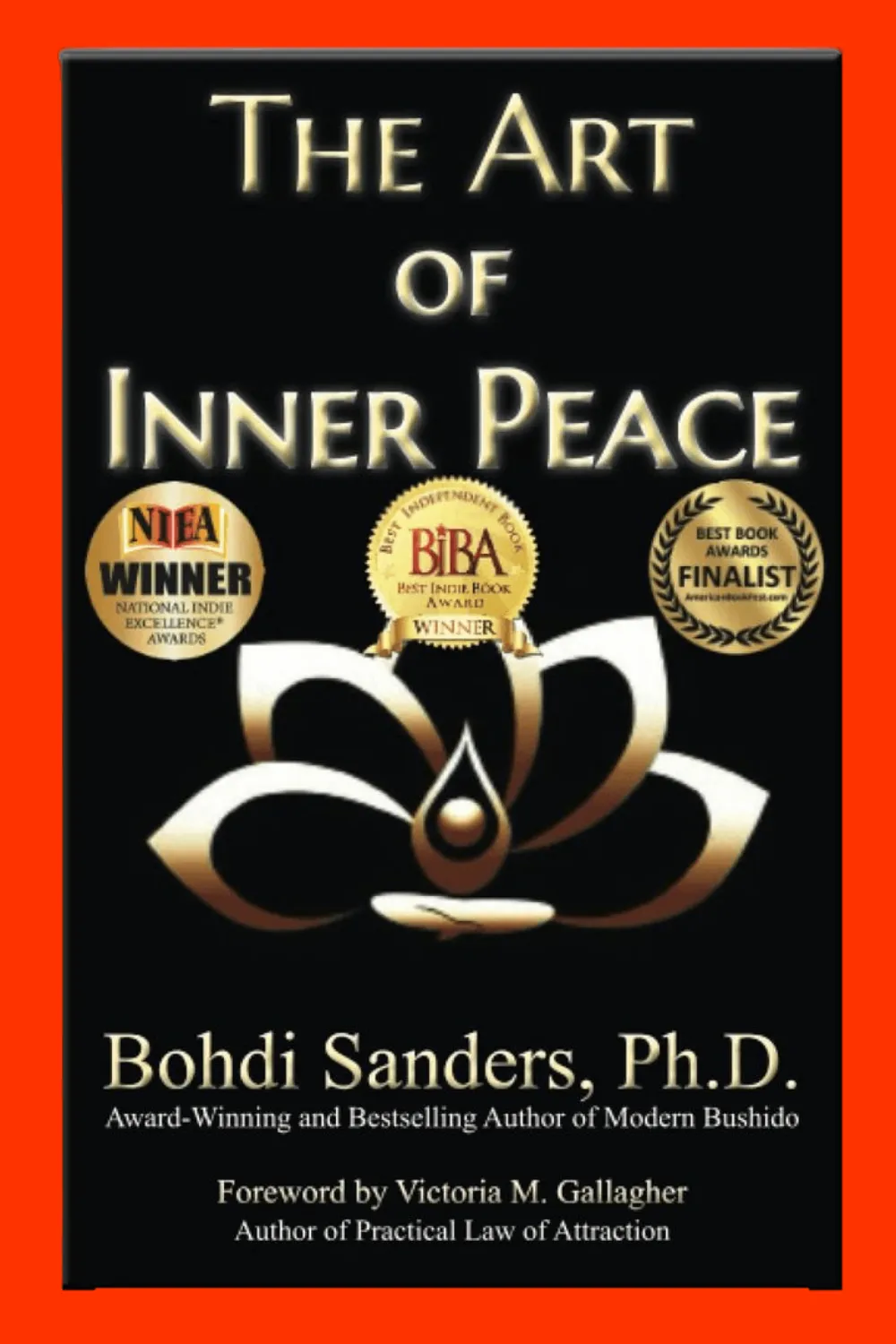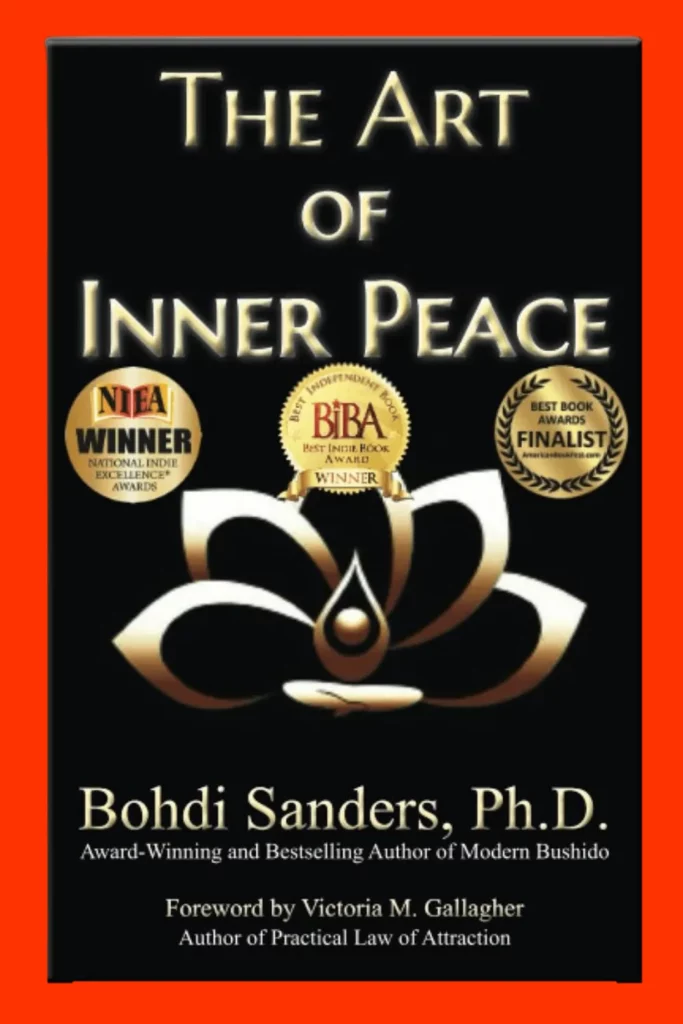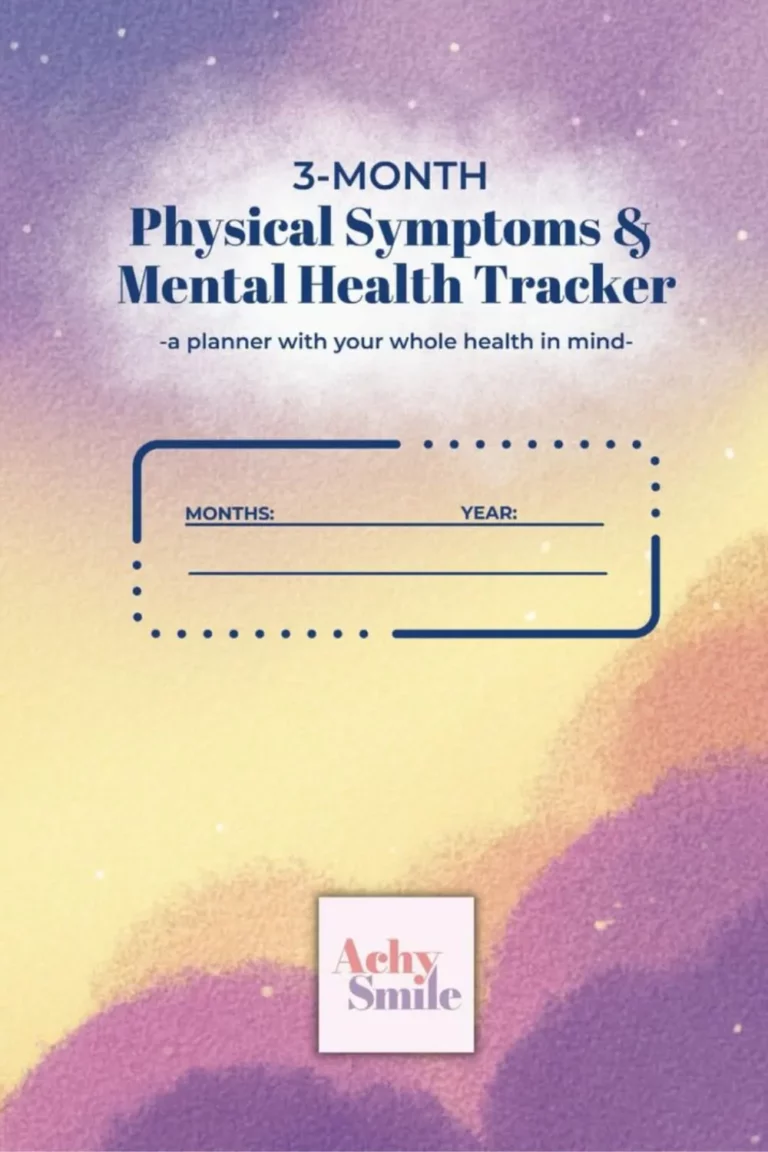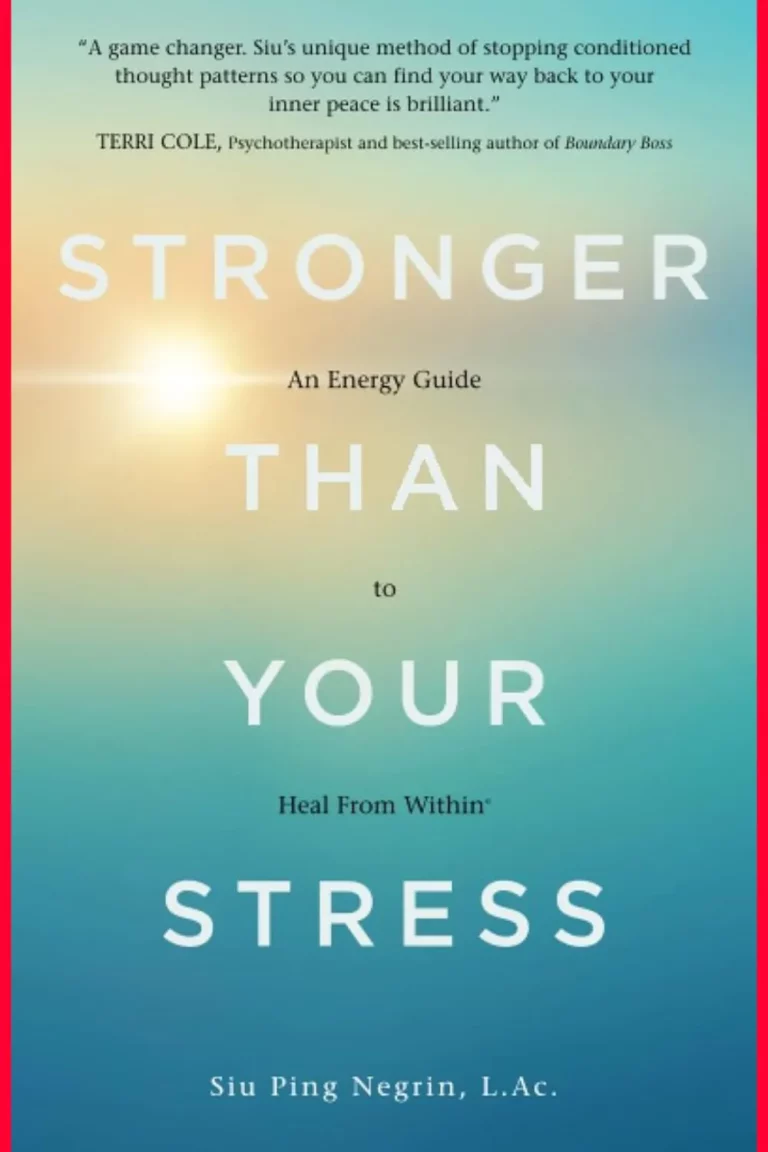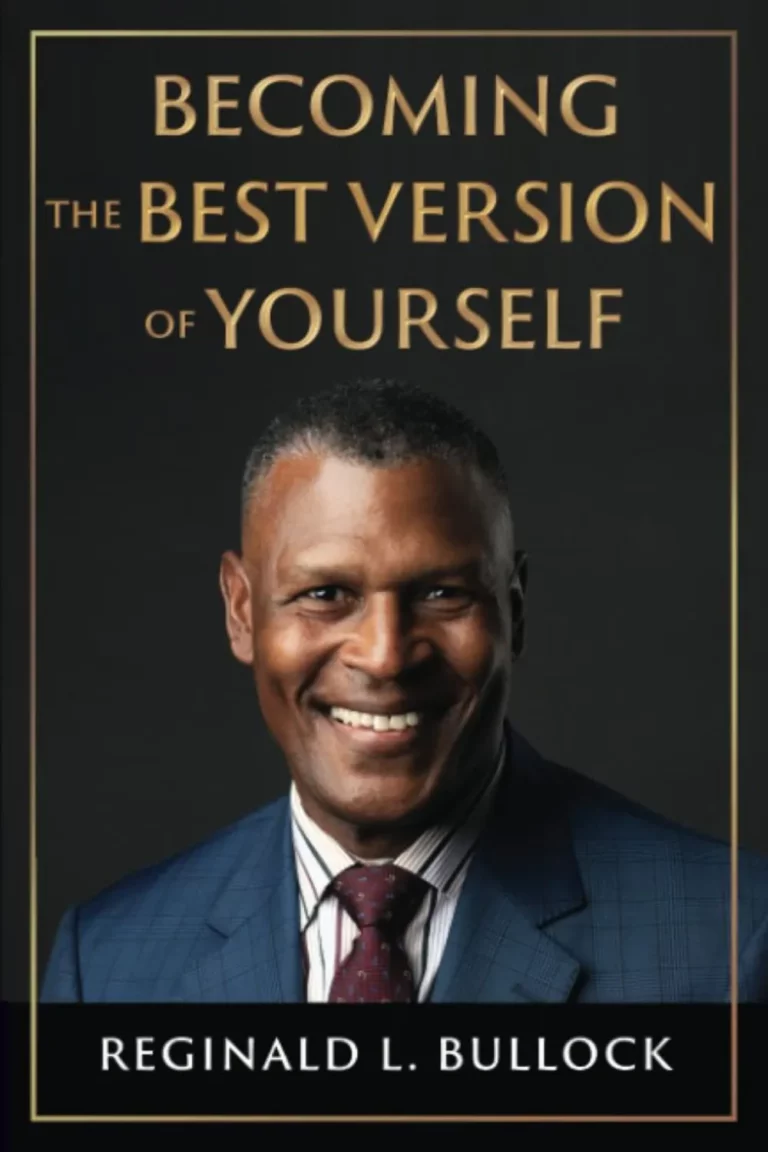Unlock Emotional Wellness and Inner Peace
In today’s fast-paced and often chaotic world, finding inner peace and achieving emotional wellness can seem like a daunting task.
The constant demands of work, family, and social media can leave us feeling overwhelmed, stressed, and disconnected from ourselves.
However, the importance of prioritizing our mental and emotional well-being cannot be overstated.
In fact, studies have shown that emotional wellness not only improves our overall quality of life, but it also has a positive impact on our physical health.
With this in mind, it is crucial that we take the time to understand and nurture our emotional well-being in order to live a more fulfilling and peaceful life.
In this article, we will explore the concept of emotional wellness and delve into practical ways to unlock it in our daily lives.
From self-awareness to self-care, we will discuss the key elements necessary for achieving emotional wellness and finding inner peace.
So let’s dive in and discover how we can cultivate a healthier and happier state of mind.
Table of Contents Unlock Emotional Wellness and Inner Peace
Identify and manage your triggers
Understanding and effectively managing triggers is a crucial step in achieving emotional wellness and inner peace.
Triggers are unique to each individual and can involve certain situations, environments, or even specific people that elicit emotional responses.
By taking the time to identify these triggers, we gain valuable insight into the root causes of our emotional reactions.
Once identified, we can then develop strategies to manage and navigate these triggers in a healthy and constructive manner.
This may involve implementing self-care practices, seeking support from loved ones or professionals, practicing mindfulness and relaxation techniques, or reframing negative thought patterns.
By proactively addressing our triggers, we can regain a sense of control and empower ourselves to respond to challenging situations with greater emotional resilience and balance.
Practice self-care regularly
Regularly practicing self-care is an essential component of unlocking emotional wellness and inner peace.
Self-care involves intentionally taking the time to prioritize and nurture your physical, mental, and emotional well-being.
This can include activities such as engaging in regular exercise, getting enough quality sleep, maintaining a balanced and nutritious diet, and engaging in hobbies or activities that bring you joy and relaxation.
Additionally, setting boundaries and saying no when necessary, practicing self-compassion and self-acceptance, and seeking opportunities for self-reflection and personal growth are all important aspects of self-care.
By making self-care a regular part of your routine, you are investing in your overall well-being and creating the foundation for a more balanced and fulfilling life.
Build a strong support system
Cultivating a strong support system is another crucial aspect of unlocking emotional wellness and inner peace.
Surrounding yourself with individuals who uplift and support you can provide a sense of belonging and encouragement during difficult times.
These individuals can be trusted friends, family members, or even professional mentors or counselors.
When facing challenges or setbacks, having a strong support system in place can offer guidance, perspective, and reassurance.
It’s important to foster open and honest communication within your support network, as this can create a safe space for sharing vulnerabilities and seeking advice.
By building a strong support system, you are fostering a sense of connection and resilience that can contribute to your emotional well-being and inner peace.
Cultivate a positive mindset
Developing a positive mindset is a fundamental aspect of unlocking emotional wellness and inner peace.
A positive mindset allows you to approach challenges with optimism and resilience, enabling you to navigate through difficult situations more effectively.
By focusing on the bright side of things and reframing negative thoughts into positive ones, you can cultivate a sense of gratitude and appreciation for the present moment.
Practicing mindfulness and self-reflection can help you become more aware of your thoughts and emotions, allowing you to consciously choose positive interpretations and responses.
Additionally, surrounding yourself with positive influences, such as uplifting books, motivational podcasts, or inspiring role models, can further reinforce a positive mindset.
By consciously cultivating a positive outlook, you can enhance your emotional well-being and experience greater inner peace in your daily life.
Prioritize your mental health
In order to unlock emotional wellness and inner peace, it is imperative to prioritize your mental health.
Mental health encompasses your emotional, psychological, and social well-being, and plays a crucial role in your overall well-being and quality of life.
It is important to recognize that mental health is not solely the absence of mental illness, but rather a state of well-being where you can cope with the normal stresses of life, work productively, and contribute to your community.
Taking proactive steps to prioritize your mental health is essential for maintaining balance and harmony in your life.
This can involve engaging in self-care activities such as regular exercise, practicing relaxation techniques, and maintaining a healthy work-life balance.
It also includes seeking support when needed, whether through therapy, counseling, or talking to trusted friends and family members.
By making mental health a priority, you can cultivate a strong foundation for emotional well-being and experience inner peace amidst life’s challenges.
Set healthy boundaries for yourself
Creating and setting healthy boundaries for yourself is a crucial aspect of unlocking emotional wellness and inner peace.
Boundaries are guidelines that define and protect your physical, emotional, and mental well-being.
They serve as a framework to establish limits on what is acceptable and what is not in your relationships, work, and personal life.
Setting healthy boundaries allows you to prioritize your needs, protect your energy, and maintain a sense of autonomy and self-respect.
It involves clearly communicating your limits and assertively asserting your needs, while also respecting the boundaries of others.
By establishing and maintaining healthy boundaries, you create a space where you can thrive emotionally, cultivate healthy relationships, and achieve a greater sense of peace and fulfillment in your life.
Embrace vulnerability and authenticity
In the journey towards unlocking emotional wellness and inner peace, it is essential to embrace vulnerability and authenticity.
This means allowing yourself to be open and honest about your thoughts, feelings, and experiences, even when it feels uncomfortable or challenging.
By embracing vulnerability, you create an opportunity for deep connections with others and for genuine self-expression.
Authenticity, on the other hand, involves being true to yourself and honoring your values, beliefs, and desires.
It requires you to embrace your unique qualities and to let go of the need for approval or validation from others.
When you embrace vulnerability and authenticity, you cultivate a sense of self-acceptance and create space for true emotional growth and fulfillment.
It is through this process that you can truly unlock the potential for emotional wellness and inner peace.
Seek therapy if needed
Recognizing when to seek therapy can be a crucial step in your journey towards unlocking emotional wellness and inner peace.
While embracing vulnerability and authenticity is important, it is equally important to acknowledge that sometimes we may need professional guidance and support to navigate through challenging situations or deep-rooted emotional issues.
A trained therapist can provide a safe and non-judgmental space for you to explore your thoughts, emotions, and behaviors, and help you develop effective coping mechanisms and strategies tailored to your unique needs.
Therapy can offer valuable insights, promote self-awareness, and provide tools to navigate life’s challenges, ultimately aiding in your quest for emotional well-being and inner peace.
Remember, seeking therapy is a sign of strength and self-care, demonstrating your commitment to your personal growth and overall well-being.
In conclusion, understanding and prioritizing our emotional wellness is crucial for achieving inner peace.
With the help of self-reflection, self-care practices, and seeking professional support, we can work towards unlocking our emotional well-being and living a more fulfilling life.
Remember, taking care of our mental health is just as important as taking care of our physical health, and by prioritizing both, we can find harmony and balance in our lives.
So let’s make a conscious effort to prioritize our emotional wellness and work towards inner peace.
FAQ
What are some strategies for unlocking emotional wellness and finding inner peace in daily life?
Some strategies for unlocking emotional wellness and finding inner peace in daily life include mindfulness practices, setting boundaries, practicing self-care, seeking therapy or counseling, cultivating gratitude, connecting with nature, engaging in creative outlets, and surrounding oneself with supportive and positive relationships.
It is important to prioritize mental and emotional health, practice self-compassion, and be open to personal growth and healing.
Developing a routine that includes these practices can help manage stress, improve emotional well-being, and foster a sense of inner peace in daily life.
How can practicing mindfulness and meditation help improve emotional well-being and foster inner peace?
Practicing mindfulness and meditation can help improve emotional well-being and foster inner peace by increasing self-awareness, reducing stress and anxiety, enhancing emotional regulation, promoting acceptance of difficult emotions, and cultivating a sense of inner calm and tranquility.
By developing a deeper connection with oneself and being fully present in the moment, individuals can better manage their emotions, build resilience, and experience greater emotional balance and contentment in their lives.
Ultimately, mindfulness and meditation can lead to a more peaceful and harmonious relationship with oneself and others, promoting overall emotional well-being and inner peace.
What role does self-care play in achieving emotional wellness and inner peace?
Self-care is essential for emotional wellness and inner peace as it involves nurturing oneself physically, mentally, and emotionally.
By practicing self-care, individuals can reduce stress, improve their mood, and build resilience against life’s challenges.
It helps in fostering self-awareness, self-compassion, and self-acceptance, leading to a deeper sense of inner peace and contentment.
Prioritizing self-care activities allows individuals to recharge, set boundaries, and cultivate a positive relationship with themselves, ultimately promoting emotional balance and overall well-being.
In essence, self-care is a crucial component in achieving emotional wellness and inner peace.
How can practicing gratitude and positive thinking contribute to emotional well-being and inner peace?
Practicing gratitude and positive thinking can contribute to emotional well-being and inner peace by shifting focus from negativity to appreciation, fostering a more optimistic outlook on life, reducing stress and anxiety, improving relationships, and promoting self-compassion.
This mindset encourages individuals to find joy in the present moment, cultivate resilience in the face of challenges, and enhance overall mental health and well-being.
By acknowledging and embracing the positive aspects of life, individuals can experience greater contentment, fulfillment, and a sense of inner peace amidst life’s ups and downs.
What are some common barriers to achieving emotional wellness and inner peace, and how can they be overcome?
Common barriers to achieving emotional wellness and inner peace include stress, negative thought patterns, lack of self-awareness, and unresolved trauma.
These barriers can be overcome by practicing mindfulness, seeking therapy or counseling, developing healthy coping mechanisms, setting boundaries, practicing self-care, and fostering positive relationships.
By addressing the root causes of emotional distress, engaging in self-reflection, and prioritizing mental well-being, individuals can gradually overcome these barriers and cultivate emotional wellness and inner peace.

